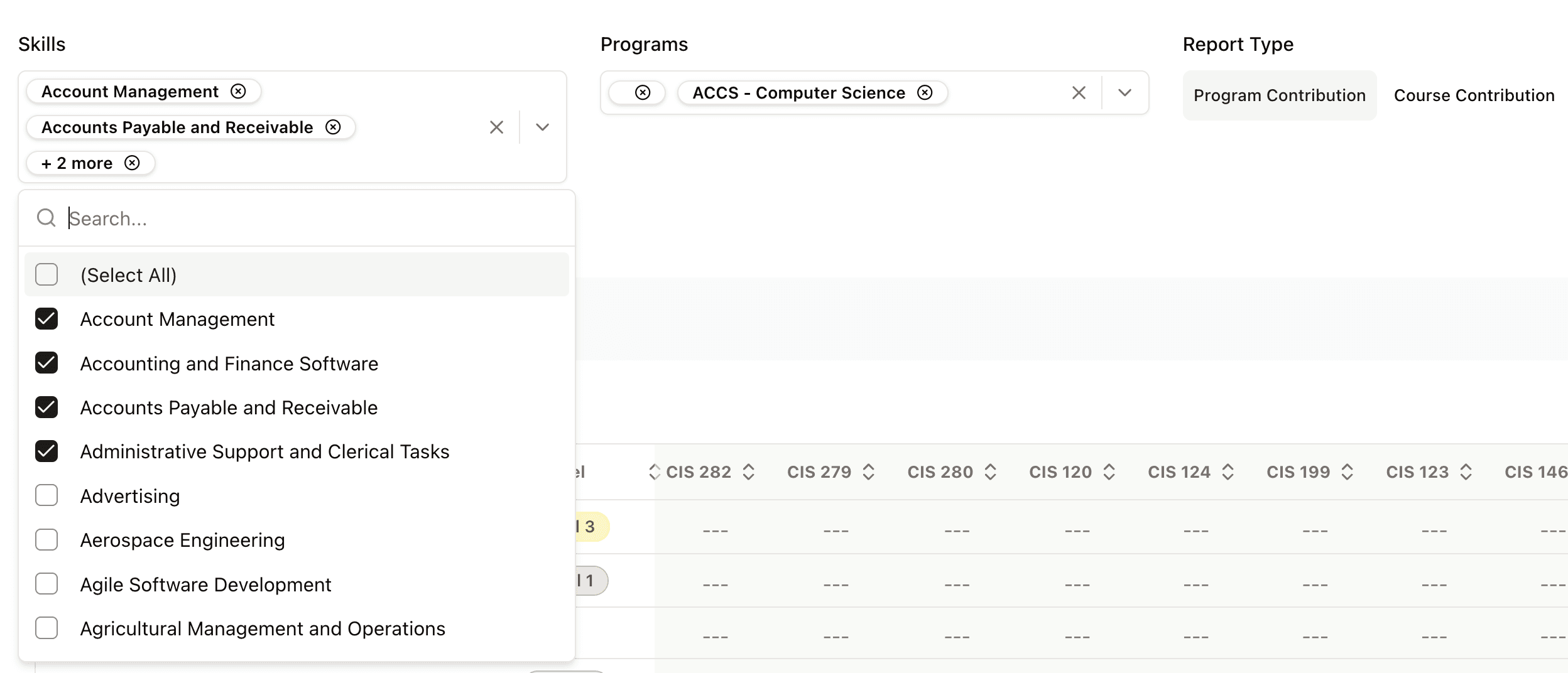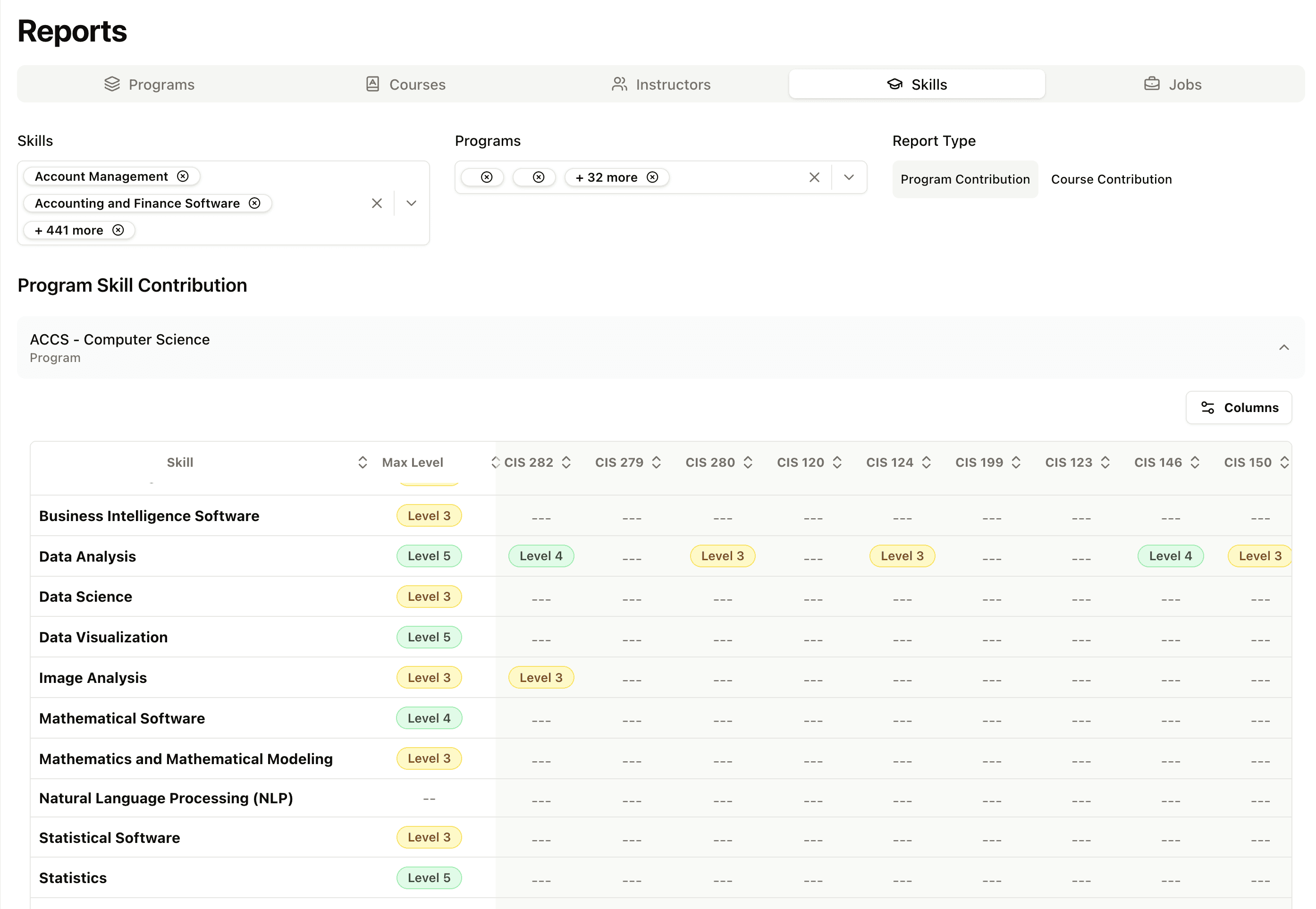Saturday, August 9, 2025
Skills Analysis

Skills Contribution Analysis
See exactly which programs and courses contribute to key workforce-aligned skills.
The Skills Contribution Analysis tool in Mapademics allows academic leaders to identify where—and to what extent—specific skills are taught, helping institutions strategically align curriculum with labor market needs and accreditation requirements.
Step 1 — Select the Skills tab
Navigate to the Skills view to focus on specific competencies rather than just courses or instructors. This lens helps decision-makers track skill distribution across multiple programs.

Step 2 — Choose Skills to Analyze
Search and select one or more workforce-relevant skills (e.g., Account Management, Data Analysis, Mathematical Software).
Filter to see only the programs or courses contributing to those skills.

Step 3 — Filter by Program(s)
Choose a single program, such as ACCS – Computer Science, or multiple programs to see how skill delivery varies across your academic portfolio.
Step 4 — Select Report Type
Program Contribution: See how skills are delivered across all courses in a program.
Course Contribution: Pinpoint which specific courses teach each skill and to what level.

Why Skills Contribution Analysis Matters
Map Curriculum to Workforce Needs
Identify gaps where high-demand skills—like Data Visualization or Business Intelligence Software—are underrepresented and adjust curriculum accordingly.
Maximize Program Relevance
Ensure every program is aligned with employer expectations by verifying that core skills are consistently integrated into coursework.
Support Accreditation & State Reporting
Quickly produce visual evidence of skills coverage to meet accreditation standards or state workforce alignment requirements.
Enable Strategic Program Planning
Spot opportunities for new courses or program updates based on skill trends and gaps.
Ideal for Higher-Ed Leaders:
Provosts & Academic Deans: Maintain institutional relevance in a competitive market.
Program Chairs: Balance curriculum across courses to avoid redundancy and fill gaps.
Institutional Research Teams: Produce exportable, evidence-based reports in seconds.
Career Services: Demonstrate to employers and prospective students that graduates have the competencies they need.
Ready to dive in?
Connect with our friendly team to learn more about how Mapademics can help your institution.